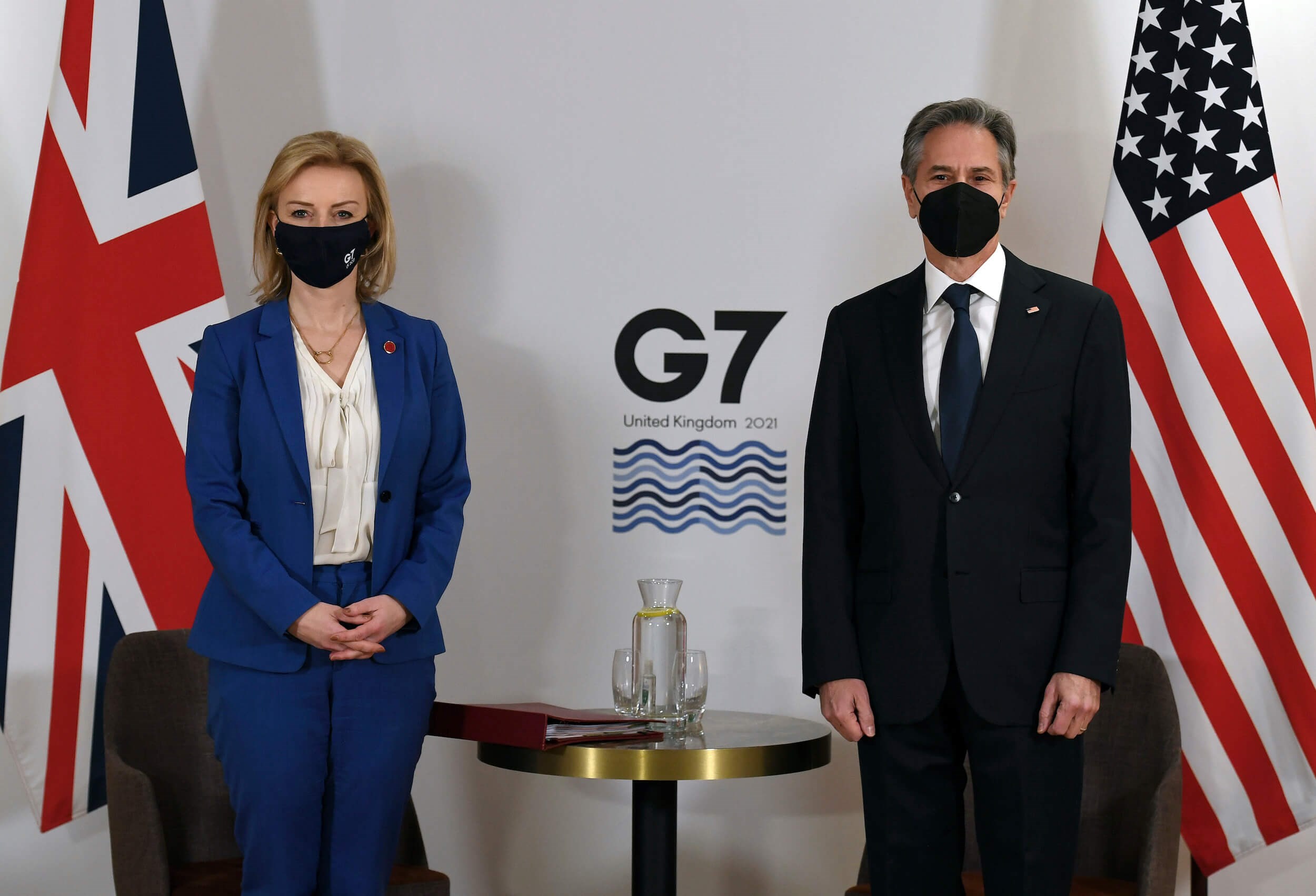UK urges G7 members to ban Russian oil imports
The United Kingdom joins the United States and Canada in their bid to boycott Russian gas and oil, which has caused a surge in energy prices all around the world.
-

UK Foreign Secretary Liz Truss and her US counterpart Antony Blinken pose ahead of the G7 summit in Liverpool, England, December 10, 2021 (AP)
British Foreign Minister Liz Truss on Wednesday called on the entire G7 to ban Russian oil imports, copying America's step on Tuesday when President Joe Biden took the decision to ban the oil imports from Russia into the country in a bid to stifle Moscow's economy.
Truss' words came during a press conference with her American counterpart, Antony Blinken, who had earlier asked the UAE to back Washington in its calls for an increase in oil production in the OPEC+ bloc as the US tries to make up for the loss of energy supplies following Biden's ban on Russian oil imports.
What is significant about the Western bids to undermine Russia's influence on the global oil markets is that Europe, the United States, and Canada are incredibly reliant on Russian energy resources.
"I think there was just an announcement a short while ago - I'm not sure if it's been made publicly yet - about Emirati support for increased production when it comes to OPEC plus," Blinken added.
Truss, during her conference with Blinken, said, "We must double down on our sanctions. That includes... the G7 ending its use of Russian oil and gas."
Truss also urged the implementation of a full ban on Russian banks using the SWIFT system, following up with, "Now is not the time to let up. Putin must fail."
Truss' call came despite Moscow revealing that it had alternatives to the American bank messaging system.
The United States on Tuesday spearheaded a Western campaign against Russia's economic sector, banning the importation of Russian oil, liquefied natural gas, and coal.
"We have surprised Putin with our unity and the toughness of our sanctions," she claimed.
US Secretary of State Antony Blinken claimed he was sure Russia would suffer a strategic defeat in Ukraine despite making possible tactical gains, in a reiteration of President Joe Biden's words about the same topic.
The Western sanctions and threats come amid a Russian special military operation in Ukraine, which Moscow said was aimed at curbing the growth of Nazism in Ukraine, as well as NATO's attempts to expand eastward and include Kiev in the alliance, which Russia saw as a national security threat.
Russia had for months been warning of the threat posed against it by NATO's attempts to expand eastward, which happened simultaneously with an increase in NATO military activity along Russia's borders, and batches of lethal weapons being sent to Ukraine, prompting Russia to request security guarantees from the West. Washington failed to provide the guarantees.

 3 Min Read
3 Min Read











